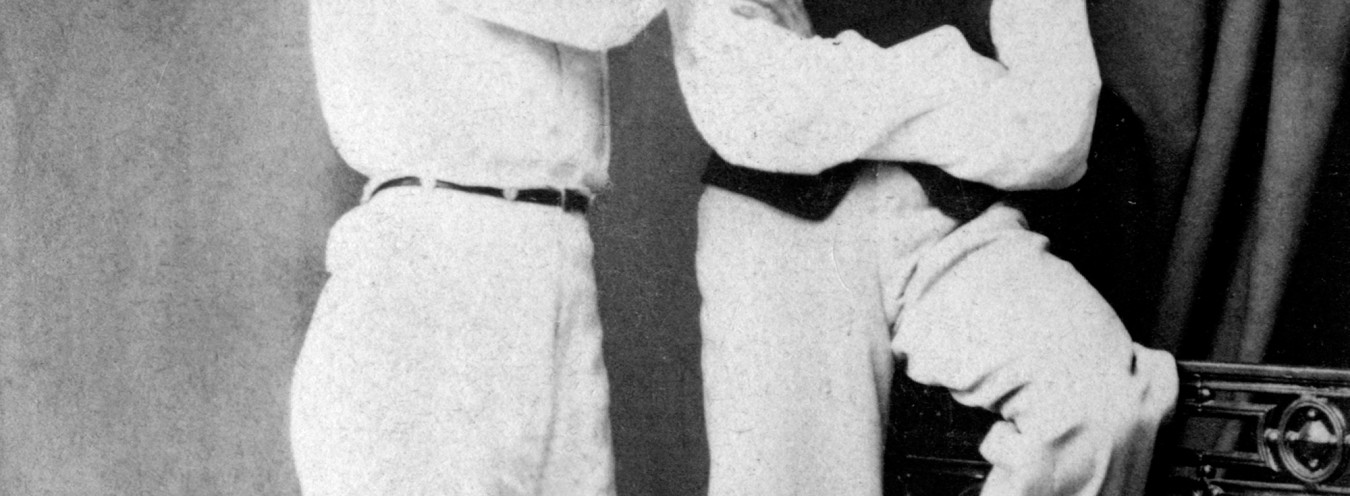
Decadent Movement
[Figure courtesy of Warsaw Public Library – Central Library of the Masovian Province]
‘Give me an aim…or death,’ [Wokulski] sometimes said, looking at Heaven. Then a moment later he would smile and think: ‘To whom am I speaking? Who will listen to me in this machinery of blind forces I’ve become the plaything of?’ (385)
The Decadent Movement (French, from decadence: decline; degeneracy) was a wide-ranging cultural current that became popular in the Europe of the latter nineteenth century. It was characterised by the feeling of loss of vital force and moral standards, pessimism, fears of impending doom and the return of barbarism.
The decadent feel in The Doll is mainly attributable to the atmosphere of the epoch, exacerbated by the recent experience of the failed January Rising of 1863 and the subsequent repressions of Poles by the Russian occupiers. It is also manifest whenever Wokulski, torn with doubt, considers the question of religion, its philosophical aspects and social function (e.g. in the Our Lady of the Assumption church where charitable offerings for the poor are held by Izabela Łęcka: What’s that huge building, which has towers instead of chimneys, in which no one lives, where only the remains of the dead sleep? […] They go to the market for food, to the shops for goods, to the theatre for entertainment, but why here?). The bleak vignettes of Warsaw as reflected in Wokulski’s eyes are also evocative of decline (e.g. in the Mokotów race-course: And it seemed to him that every night, on these rotting benches, dead bankrupts, remorseful coquettes, all kinds of idlers and wastrels took their seats, having been expelled from Hell, and that by the sorrowful light of the stars, they watched the races of skeleton horses who had perished on this course). As regards the psychological sphere, a major decadent symptom can be detected most clearly in Wokulski’s mind after his suicide attempt, when he develops the so-called “paralysis of the will” – disabling doubts about the value of his own rationale for action. The social aspect and extent of this condition was extensively discussed at the time; experts on this phenomenon included positivist psychologist Julian Ochorowicz, the author’s friend and the most likely model for the character of Julian Ochocki.
However, the traces of the Decadent Movement in The Doll can be found not only in a specific worldview and the characters’ psychological traits or culturally conditioned behaviour. The novel also draws on the philosophy that justifies a pessimistic approach to life and its logical consequences. Man appears to be but a plaything at the mercy of blind forces, which entails a typically modernist fixation on intense emotions and the resulting obsessive pursuit of most extreme experiences to fill the existential void. A typical example of this attitude is Wokulski’s reflection on the meaning of life: It is all the same to me. […] If we must stupefy ourselves with something, then let us do so with no matter what.
In its existential variation, late nineteenth-century decadence borders on a desire for self-destruction. Wokulski is subject to this mood even before he becomes disillusioned with Izabela; for instance, walking in Powiśle (a deprived district on the Vistula bank), he makes the following observation: ‘Had I come here by night, [local people] would certainly have cured me of melancholia. Tomorrow I’d be resting under this garbage which, after all, is as comfortable a grave as any. In the town there’d be a fuss, these honest folk would be run to earth and excommunicated – yet they might have done me a favour.’ Similarly, while in the Łazienki park, he asks himself: ‘Or if some robber stopped me and killed me here, in this corner?’ And he imagined how agreeable the cold of a knife would be, plunged into his feverish heart. In its most radical form, decadent attitudes may trigger the death drive: a tendency towards self-destruction, described by Sigmund Freud as a counterpart to libido. In The Doll, this drive can be easily recognised in Wokulski just before his suicide attempt in Skierniewice (And suddenly he no longer felt any desire, only a hunger and thirst for death).
Finally, the decadent outlook on life may also be a source of aesthetic experience. It endows seemingly realistic representations of the world with a peculiar metaphysical quality, building a link with the Absolute and the Eternal. This can be seen e.g. towards the end of the novel in a beautiful metaphor of the human soul as a pebble dropped into water: at first, it leaves ripples on the surface, but they gradually and inevitably fade away into nothingness.
→ Philosophy; → Ochocki, Julian; → Russia; → Wokulski, Stanisław;
Bibliografia
- J. Tomkowski, Mój pozytywizm, Warsaw 1993.
- E. Paczoska, Lalka czyli rozpad świata, 2nd ed., Warsaw 2008.



